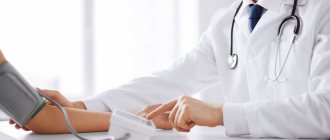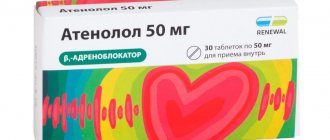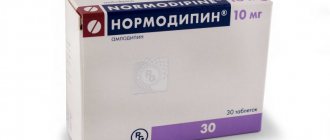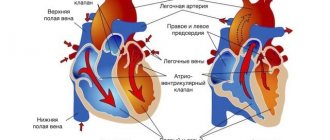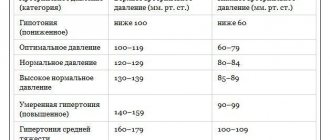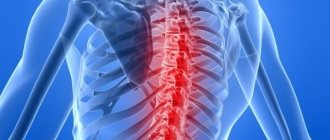When the heart asks for help
Timely diagnosis of diseases often plays a decisive role, especially when it comes to cardiac problems. The sooner an accurate diagnosis is made, the sooner the correct treatment can be prescribed. It is very important to be attentive to your heart and consult a doctor if any signs of trouble appear. Tachycardia is an increase in heart rate above normal. In some cases, it is one of the signs of heart disease.
Contact your doctor if you experience the following symptoms:
- you have already been diagnosed with some form of tachycardia, but you have not contacted a cardiologist for further observation and/or treatment
- periodic palpitations
- chest pain, heart pounding
- difficulty breathing, feeling of lack of air
- pre-syncope or fainting (even without discomfort in the heart area)
- dizziness
- When counting your pulse at home, you independently detected a pulse rate of 90 beats per minute or more
- increase or decrease in blood pressure
- the presence of cardiac diseases in you or in your relatives.
Even if you have experienced an attack of tachycardia for the first time, contacting a doctor is considered mandatory.
Complaints of palpitations are a serious reason for urgent examination. At the EXPERT Clinic, patients are treated by doctors with extensive experience. The most modern diagnosis of heart rhythm disturbances is possible.
Danger
Tachycardia is a dangerous condition. Great threats to health, and sometimes to life, arise when an elevated heart rate (more than 100 beats per minute) persists for a long time. In this case, the likelihood of cardiac arrest increases. Therefore, it is important to know why a high pulse occurs at normal pressure and what to do to stabilize the condition.
With tachycardia, there are risks of impaired metabolic processes, which can provoke the development of immunodeficiency and cause other negative consequences. Very often, fainting occurs regularly against the background of tachycardia. This may cause injury. Also, the pathological condition can provoke a heart attack and increases the risk of thromboembolism.
Causes of rapid heartbeat
There is a natural (physiological) tachycardia, when a rapid heartbeat occurs in response to some kind of physical activity, severe stress and emotional stress, with an increase in body temperature, etc. In this case, the heart rhythm returns to normal on its own. Physiological tachycardia is also observed during pregnancy (especially in the third trimester). A variety of reasons can lead to disturbances in the functioning of the heart. First of all, these include heart diseases (for example, defects, endocarditis). Tachycardia is one of the clinical manifestations of anemia.
Increased heart rate occurs with certain diseases of the endocrine system (for example, diabetes mellitus, thyroid pathology). Tachycardia appears in disorders of the autonomic nervous system, due to hemodynamic disorders, with regular use of certain medications, etc.
Cardiologists at the EXPERT Clinic take into account the variety of reasons that “make” the heart beat faster. That is why patients are offered a comprehensive examination to accurately determine the causes and correctly prescribe the treatment that the patient so needs.
What to do if you feel a strong heartbeat in your chest
Knowing the cause, you can easily eliminate the effect. We have already become familiar with the reasons for the increase in heart rate; all that remains is to choose the right treatment.
If the increase in heart rate is associated with physiological factors, then lowering the heart rate will not be difficult. To do this, you just need to remove the provoking factor. It is more difficult to treat disorders of the heart and other organs.
If there is a feeling of heart fluttering, it seems that it is about to burst out of the chest, you should not self-medicate under any circumstances. This is a direct indication for calling an ambulance! Only doctors will be able to take a cardiogram, make a differential diagnosis and select adequate treatment. But after an attack, you should definitely contact a cardiologist to get a permanent treatment regimen to prevent such arrhythmias.
Doctor's advice
Many people misinterpret their condition, calling any increase in heart rate an arrhythmia. Arrhythmia is a rhythm disorder that can occur even when the heart rate is normal. As I explain to patients; a normal, rhythmic pulse is knock-knock, knock-knock, knock-knock, and arrhythmia is knock-knock, knock-knock, knock, i.e. namely, a violation of the rhythmicity of the heartbeat without connection with frequency. A frequent but rhythmic pulse is tachycardia. If you are not sure that you have correctly identified cardiac dysfunction, then it is better to tell the doctor that something is wrong than to immediately characterize your condition incorrectly. This will facilitate the diagnostic search and reduce the number and time of examinations.
Victoria Druzhikina Neurologist, Therapist
Beta blockers in small doses are suitable for stopping sinus tachycardia, because they reduce blood pressure. Treatment of paroxysms of sinus tachycardia usually involves the use of antiarrhythmics.
If, in addition to rapid heartbeat, there are also symptoms of increased sweating, sudden mood swings, causeless weight gain, shortness of breath with little physical activity, tremors of the limbs, bulging of the eyeballs, enlarged thyroid gland, a feeling of constriction in the throat and “interference” when swallowing, you should consult an endocrinologist and conduct a thyroid examination. A set of such symptoms indicates hyperthyroidism . Therefore, treatment with heart medications will not have a positive effect. In this case, hormonal therapy is necessary.
To treat anemia, you need to take a blood test. To find out the cause of the lack of red blood cells and/or hemoglobin. Only after this can you begin treatment.
Heart rate is an indicator that responds to a variety of changes in the body. Even Hippocrates, back in Ancient Greece, was able to determine the importance of heart rate indicators. By regularly measuring heart rate, severe pathological processes can be detected in a timely manner. Therefore, one should not neglect such a simple but important method for diagnosing both cardiac and non-cardiac diseases.
Find out about the reasons for high heart rate from the video:
This article has been verified by a current qualified physician, Victoria Druzhikina, and can be considered a reliable source of information for site users.
Bibliography
1. https://minzdrav.gov-murman.ru/documents/standarty-meditsinskoy-pomoshchi/2-standarty-spetsializirovannoy-meditsinskoy-pomoshchi-/bolezni-sistemy-krovoobrashcheniya-i00-i99-/710.pdf 2. https ://health.admtyumen.ru/files/upload/OIV/D_zdr/Clinical%20recommendations%20 (protocol)%20on%20providing%20emergency%20medical%20care%20for%20tachycardia%20and%20tachyarrhythmias.doc
Rate how useful it was article
3.1 15 people voted, average rating 3.1
Did you like the article? Save it to your wall so you don’t lose it!
Why is tachycardia dangerous to health?
Attacks of tachycardia are most often periodic. They may occur for a short period of time and with a relatively small increase in heart rate, and a strong heartbeat affects the ability to work. In all cases, urgent examination of the patient is required! The main danger is posed by yet unidentified cardiac diseases, which can manifest themselves as palpitations. People with already diagnosed serious problems require great attention. This may be coronary heart disease, chronic heart failure. In severe cases, tachycardia provokes even more dangerous rhythm disturbances and more serious complications (cardiac asthma, pulmonary edema). Emerging hemodynamic disorders are generally an unfavorable factor for the condition of internal organs.
In the event of an attack of tachycardia, you must immediately call a doctor (in case of any deterioration in health: loss or confusion of consciousness, severe pain in the heart area, etc.). During an attack, a person must be kept at rest.
Why is tachycardia dangerous?
Tachycardia poses a health hazard if it is caused by dysfunction of the cardiovascular system or other diseases of the internal organs. A rapid heartbeat prevents the heart ventricles from filling with blood, which leads to a decrease in blood pressure and a deterioration in the blood supply to internal organs. In addition, a heart working hard requires much more oxygen. This condition threatens to develop into acute heart failure and lead to heart attack and coronary artery disease.
Diagnosis and treatment of tachycardia
You are experiencing palpitations, what to do in this situation? The answer is simple - contact a cardiologist. First of all, the doctor will conduct an accurate diagnosis. It begins with a detailed interview with the patient. It is important for the doctor to hear about all existing complaints, as well as about chronic diseases, heredity, etc. The main method of examination is an ECG. Currently, there is modern equipment for obtaining ECG data. With its help, any cardiac arrhythmia is determined as accurately as possible. Correct ECG analysis is of particular importance, so an experienced cardiologist interprets the data obtained. In some cases, to clarify the diagnosis, other methods of examining the patient are required: echocardiogram, Holter ECG monitoring, etc. We must not forget about additional research methods: blood tests, ultrasound of the thyroid gland, etc.
At the EXPERT Clinic, the entire necessary range of diagnostic measures is possible. There is modern ECG equipment, so the cardiologist will always make a quick and accurate diagnosis.
How to choose a cardiologist
If you want to go to a medical institution for consultation because of rapid heartbeat, then first of all it is important to choose a clinic that has proven itself well. Advantages of the EXPERT Clinic:
- multidisciplinary medical center, which allows you to get advice from various specialists if necessary
- experienced and attentive cardiologists
- modern examination equipment, as well as practicing specialists in ultrasound and functional diagnostics
- the ability to quickly take all tests and provide examination results
- the most attentive attitude towards patients, only an individual approach, a detailed study of the problem
- convenience and comfort in the clinic, responsive medical staff.
Do not delay visiting a cardiologist, because timely identification of the main problem of “rapid heartbeat” can sometimes save your life.
Rhythm under control
The doctor selects an antiarrhythmic treatment strategy. The main option for normalizing cardiac arrhythmias are antiarrhythmic drugs. Drug therapy is prescribed on a strictly individual basis. It depends on the form of tachycardia, existing chronic diseases and disorders, as well as on the causes that caused this condition! There are different groups of antiarrhythmic drugs depending on the main mechanism of action. Due to individual characteristics in the prescription of therapy, it is strictly forbidden to self-medicate. In difficult cases, urgent medical intervention is necessary to stop the attack.
Additionally, the cardiologist evaluates risk factors that may worsen the patient's condition. This may be family history, old age, arterial hypertension, some chronic diseases, lifestyle, etc. Simple rules for an adequate work and rest regime have a positive effect. This includes proper and restful sleep, good nutrition, limiting stressful situations, and the right approach to physical activity. If you have tachycardia, you should not smoke or drink alcohol. Alcohol and nicotine can independently affect the heart rhythm, and also become provocateurs of more serious pathologies. If palpitations occur, it is very important to always follow all doctor’s orders and regularly come for routine examinations. The specialist will evaluate the effectiveness of the prescribed therapy and clarify your well-being. Do not stop prescribed medications yourself. Only a cardiologist will help you choose the right tactics and take control of your heart rhythm.
The cardiologist at the EXPERT Clinic prescribes individual drug therapy only after a thorough assessment of the patient’s condition. A careful comprehensive approach and correct diagnosis guarantee effective treatment! Frequent heartbeat will no longer bother you.
Traditional methods of treatment
Most medications to lower heart rate have a hypotensive effect, so they cannot be used at normal blood pressure. If an attack of tachycardia is one-time in nature and is not accompanied by a strong deterioration in well-being, you can try to cope with the pathology using traditional medicine recipes.
Decoction of hop cones
Wash hop cones (200 g) thoroughly and pour boiling water over them, then pour in 500 ml of boiling water and put on low heat. You need to cook the product for at least 15-20 minutes. After the decoction is ready, it must be strained and left to infuse for 2-3 hours. Take 100 ml 3 times a day after meals.
The duration of treatment is 1 month, but if necessary, therapy can be continued for up to 2 months.
Infusion of motherwort and calendula
Mix 1 teaspoon of dried motherwort and calendula flowers and pour 400 ml of boiling water. Leave in a dark place for 8 hours. You need to take the infusion 2 tablespoons 4 times a day between meals. The duration of treatment is from 2 to 4 weeks (depending on the existing dynamics).
A mixture of honey and motherwort
Mix a teaspoon of honey with 4-5 drops of motherwort alcohol tincture and add a spoonful of lemon juice. The resulting mixture should be consumed during the day in 2-3 doses. Duration of treatment – 20 days.



